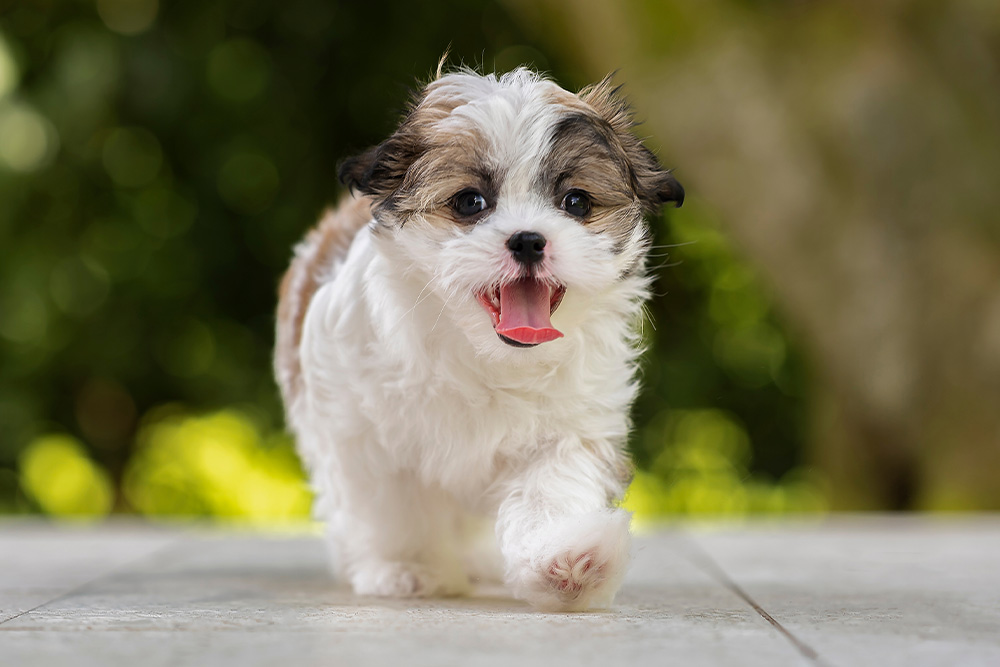Chihuahua
Also, breeds will vary with temperament, disposition, and how much time you can spend grooming and training the dog. Proper grooming for some breeds is not only regular brushing; some may need special grooming. Another aspect to consider is the health needs of the specific breed; some breeds are easily prone to various diseases. In conclusion, the adoption of a dog must be based on a mature and adequate reflection on our possibilities so that the new pets can be properly cared for and have a decent life.
Welcome to learning about another great breed in the dog world today—the Chihuahua. These uniquely temperamental little guys and girls have quite an extraordinary background. Read on to see if this is the dog for you!

Appearance
The most noticeable thing about Chihuahuas is their size. Chihuahuas are among the smallest dogs, with minimal height and weight. This means that adult cats tend to be larger than adult dogs of this breed. The body is proportionate; the back is well-defined; the belly is rounded but not distended. They also have round heads and large prick ears. They have widely spaced, bulging eyes. A lot of people enjoy this particular look. Chihuahuas have short, squatty little noses that give them charming, innocent looks.
What’s more, their fur can be of different lengths or colors, depending on the dog. Some Chihuahuas are long-haired and can have their hair styled or trimmed. On the other hand, short-haired dogs have smooth, shiny fur that is easier to care for. The color spectrum of this breed’s coat is very broad — from chocolate through cream to black and gold, often featuring different patches and patterns. The tail is typically long, carried upwards or curled over the back, and they have small, delicate paws in proportion to their small body.
Chihuahua Breed History
The Chihuahua derives its name from the Mexican state where the dog grew in popularity and style at the close of the 19th century. This breed’s history goes back even further, but it is primarily speculative and theoretical. According to some sources, these small dogs were sacred in pre-Columbian times to ancient civilizations such as the Toltecs and Aztecs. Chihuahuas had been kept as companions, and their size made them easy to transport. There is also speculation that the breed traveled the world with the Spanish conquistadors. Nowadays, Chihuahuas are still very popular because a lot of people want these lively, clingy little companion pets.
Chihuahua Personality
There are many visual and temperament differences among dog breeds. While some breeds are naturally friendly and social, others can bear too strong a character or be more demanding. The choice depends on the family, their lifestyle, and the owner’s experience and expectations regarding the pet. Choosing the right breed can greatly impact the enjoyment you experience from dog ownership and your relationship with your canine companion.
So what about Chihuahuas? Such a breed is also unique due to its traits and personality. People expect Chihuahuas to be timid because of their size and are often taken off guard by their confident demeanor. These small pets are very faithful to their owners, which also means they are frequently bonded to family members. Chihuahuas are appropriate for families with small children due to their smaller stature.
These dogs are also very active and playful, making them an excellent playing companion. Some people think that smaller dogs like Chihuahua do not need to walk often. On the contrary, these dogs have an intense spirit. Chihuahuas are energetic and require a lot of exercise, so they tend to work for those who enjoy walking with dogs.
Chihuahuas are also commonly known to be highly alert and territorial. They can also be slightly dominant with other dogs, so proper training and socialization are necessary. Its personality changes at ease based on its unique personality attributes; however, they are commonly noted as a clever canine breed and relatively simple to teach. They can also be too independent, so their owners need to be patient with them. Chihuahuas are one breed that appreciates human attention. Small but mighty, these dogs have big hearts and are perfect family companions for people of all ages.

Chihuahua Health
Due to their breeding history and genetics, various canine breeds are more prone to specific ailments. Chihuahuas tend to have lots of issues because of their small bodies. Now, let’s learn what dog owners of this breed regularly visit a vet with. Potential dog owners should know the specific health risks linked to a breed they intend to adopt.
Limb Injuries
There can be so many issues, from joint to musculoskeletal problems, with small dogs short in limbs. A condition often seen in Chihuahuas is patella luxation. This is when the kneecap is periodically or permanently displaced. The owner will observe this problem during walks when the canine pulls the feet up. Eventually, the dog will maybe start to walk normally again. This is based on how serious the kneecap displacement is. The causes are mainly anatomical defects. In this situation, it is crucial to have an appropriate diet and regular, moderate activity. But sometimes surgery is necessary.
Lower Respiratory Tract Disorders
Chihuahuas are delicate dogs that can be contracted from respiratory diseases. In these cases, owners may notice symptoms like respiratory issues and coughing. One of the most frequent problems is tracheal dysfunction. It is a progressive, long-term health condition that severely impacts the functionality of the dog. Most impacts to the trachea will be in small breeds due to anatomical structures. Another common thing chihuahuas often experience is reverse sneezing. This is where the dog makes a series of sneeze-like motions in rapid succession without exhaling. This can be due to many reasons, from upper respiratory tract irritation to inflammation, allergic reactions, or even strong emotions.
Food Allergies
Food allergies are yet another frequent issue that Chihuahua parents have to contend with. Because of this sensitivity to allergens, owners must only feed dogs with hypoallergic foods. This can incur further expenses related to the purchasing of safe dog food. Allergies can occur in Chihuahuas due to certain meat, plant, or wheat products. This means you must be highly cautious with new products with these dogs and ideally perform allergy tests at the vet. Dogs usually develop skin problems or other symptoms due to allergies.
Digestive Tract Infections
Digestive problems, such as hemorrhagic gastroenteritis, are other big issues we see in Chihuahua dogs. In dogs, it is characterized by vomiting and bloody diarrhea. It can be caused by eating meat or pet food that has been contaminated. For this reason, Chihuahua owners need to maintain a particular awareness of what their dog eats. Anal gland infection is another common disease of Chihuahua.
Heart Diseases
Chihuahuas are also prone to different heart issues. These include mitral valve endocarditis, which is among the most common heart diseases seen in dogs. When the heart is in trouble, it often makes the dog short of breath, have palpitations (rapid heartbeat), or tire out rapidly. Some owners might have observed that their dogs were not as keen on walks anymore or that they were getting wheezy after minimal activity. To put this in perspective, the leading cause of death in this breed of dog is heart disease. Therefore, owners must provide these dogs with the best possible heart care.
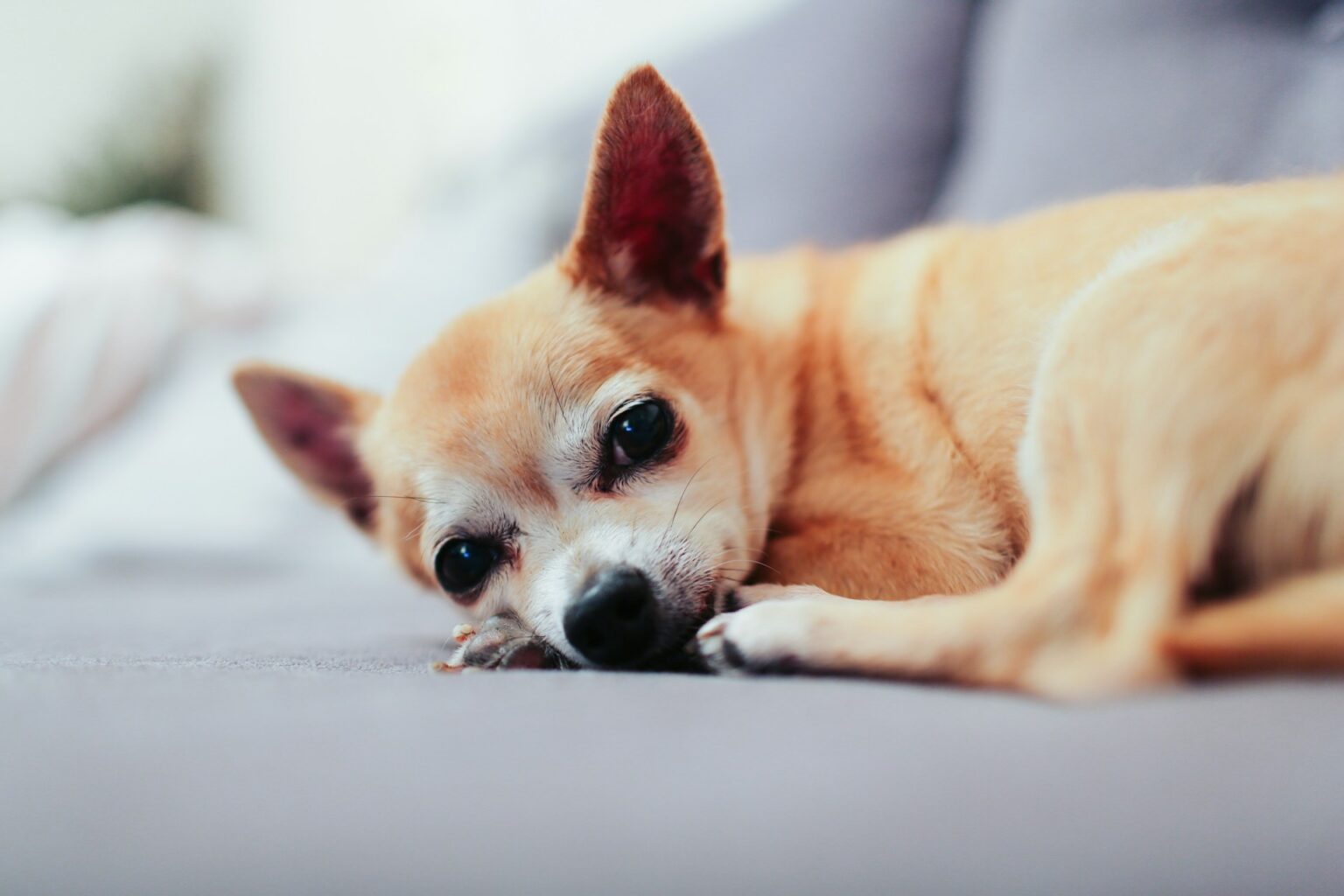
Chihuahua Care
The responsibility of dog owners is to ensure their dog has all the necessary things they need. With proper care, Chihuahuas can live for over a decade or more. An owner should be able to give them a healthy space and an atmosphere that is safe for the welfare of their pets. Another critical aspect of a dog’s health is a balanced diet, adjusted to the animal’s age and degree of activity, which provides an optimal body weight and all the nutrients necessary for it.
Regular physical activity is also important to satisfy the dog’s instinctive need for exercise. Regular grooming will not only maintain the appearance of the coat but also prevent skin diseases and hygiene concerns. Taking care of these aspects of your doggy life can help your pup live longer and happier.
Safe Environment
Chihuahuas are known for their high adaptability to the environment. But they prefer a calm place where they can live close to their owners. Because they are small-sized dogs, people who live in small-sized apartments can make them comfortable. But keep in mind that Chihuahuas still require some room for play and exercise.
Chihuahuas are cold-sensitive, so they should have a warm place to sleep during the colder months and dressed when taken outside. Because of their small size, you also need to make the house to be safe! Ensure that other animals (significantly bigger dogs) won’t harm your Chihuahua if you have them.
Diet and Nutrition
Chihuahuas are tiny dogs, which means you will not need to buy lots of dog food. However, since this breed is prone to allergies and digestive problems, the owner has to pay attention to the quality of the food. It is worth buying special food for small breeds which contain the necessary vitamins and minerals. Moreover, you should refrain from hard-to-digest and artificial additives. Experts also advise against allowing these dogs to become overweight, as this may amplify joint issues or other illnesses.
Physical Activity
Some dogs keep calm and sleep most of the day on the sofa, and some are energetic and require regular exercise. You might be shocked to discover that Chihuahuas belong to the second group. These small dogs have a lot of energy that should be released by walking or playing. If not assured, canines may misbehave. Hence, owners need quality time to spend with these pets. Their size makes them less reliant on long walks, but short daily walks and play sessions are essential. Providing them with special, interactive toys to keep them active is also a great idea.
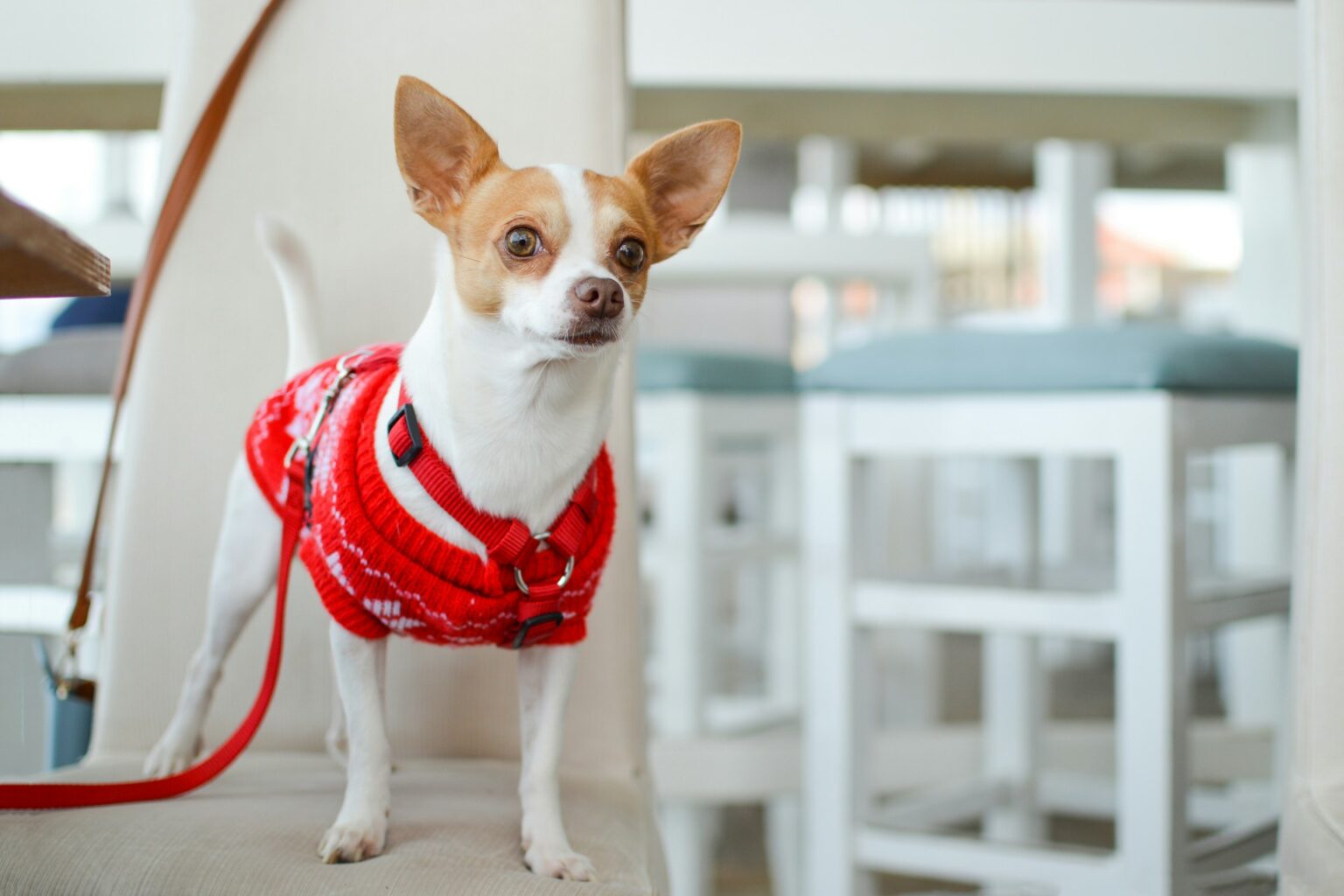
Grooming
Chihuahuas have various sizes of fur. Long coats are obviously more challenging to maintain than short coats. But no matter the coat type, you must brush your dog to prevent skin diseases and mats. In addition, regular haircuts may be necessary.
You can also wash Chihuahuas. They’re too sensitive to cold, so make sure the water temperature is correct. Make sure to wrap the dog in a towel after the bath because otherwise, it will shiver. Also, use a special dog shampoo. If you plan to do your Chihuahua’s nails at home, be sure to have the right tools, and they are of high quality. Cleaning your dog’s ears is another oft-overlooked grooming task, but one well worth doing.
Training
Chihuahuas have a very high level of intelligence. But these dogs are also strong-willed and can be somewhat stubborn. Training them can be a struggle or a pleasure, depending on how the owner goes about it. These dogs are sensitive, which means that if you train them too roughly, there is a chance that they will get stressed. Their training is most efficient using positive reinforcement. Chihuahuas usually follow their owner around and distrust people they do not know well. So, these dogs need to be socialized around other animals and people so that they are not fearful of them.
The ideal time for getting your Chihuahua trained is when you just have a puppy. A Chihuahua can learn tons of commands and tricks. In some cases, the dog can have harmful behaviors as a result of outside stress; in this case, training may be necessary. Hire a behaviorist if you are unsure of dog training.
Chihuahua Dog FAQs
You are now an expert on Chihuahuas. However, you may still have some other questions pending. Search around here.
How Much Does a Chihuahua Cost?
The market price of Chihuahuas varies with each breeder. A new puppy can range between hundreds and thousands of dollars. The color of the dog’s coat or whether the Chihuahua belongs to a specific bloodline could affect the price.
What Size Is Chihuahua?
This breed is small. They typically weigh less than 2.7 kg (6 pounds), which means even children can scoop up a Chihuahua. The average height of an adult Chihuahua is about 20 cm. This makes it super convenient to carry them when traveling or to the vet. They are also ideal for people who are looking for a companion dog that does not take up much space.
How Long Does a Chihuahua Live?
A dog could live longer or shorter, given any number of variables. Genetic predisposition is one of the most essential elements of a dog’s overall health and life expectancy. This is because some breeds are prone to specific diseases, which can lead to early death. Nevertheless, statistics show that Chihuahuas’s life expectancy is around 12 years. If you want your dog to lengthen as many years as possible, ensure you give them the finest conditions and regularly take them to the vet.
Is a Chihuahua a Good Family Dog?
Being a small dog is always a plus, especially for families with kids. Their temperament is variable, though. While some Chihuahuas are friendly and outgoing, others appear suspicious or timid. Consequently, if you have kids, ensure that you show them how to take care of the dog. You can also socialize the dog to get accustomed to children around. When given the right conditions, Chihuahuas can be amazing family dogs. They are very friendly and enjoy playing with people.
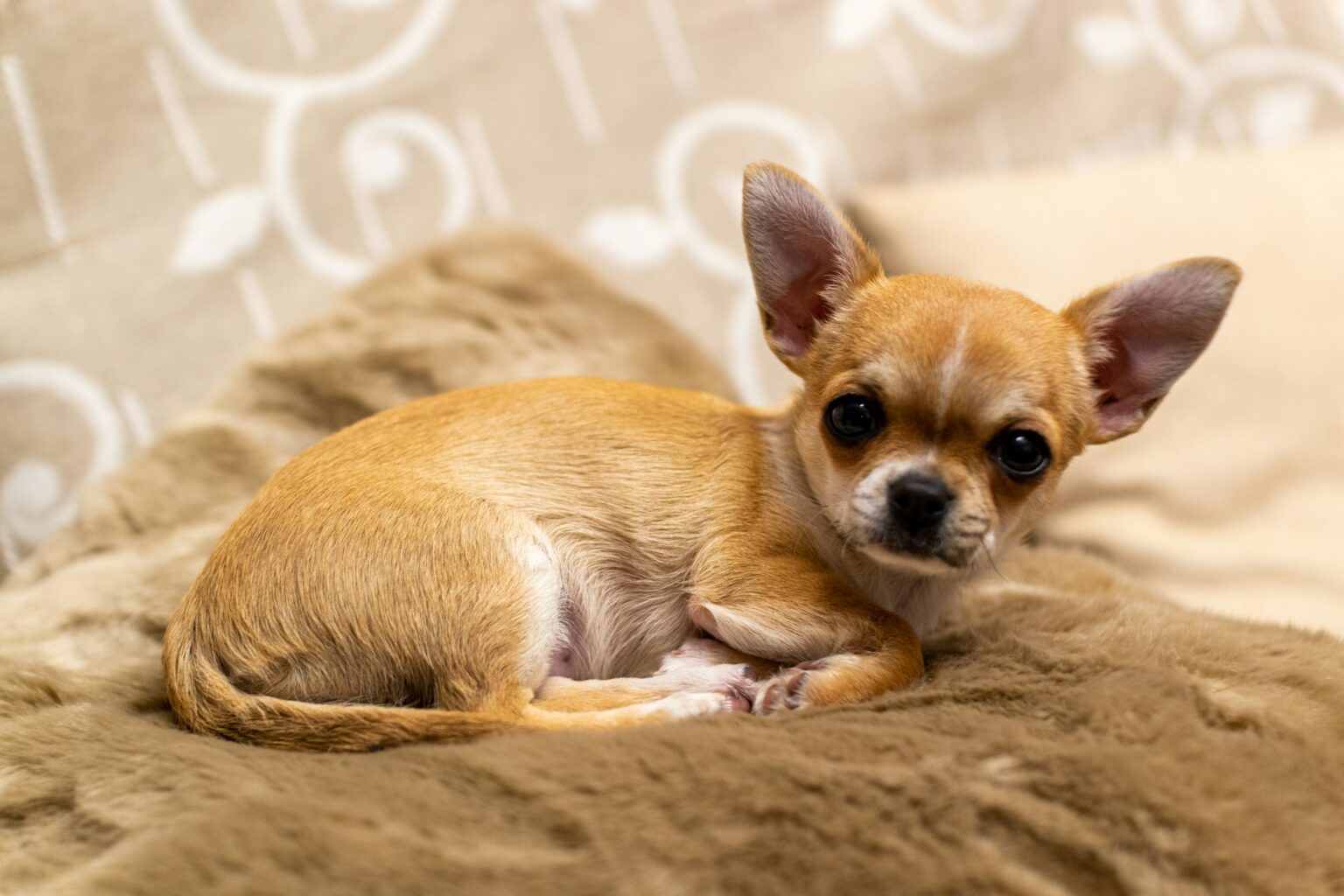
Summary
Chihuahua is a tiny but highly spirited dog breed. These dogs are exceedingly loyal to their owners. It is a breed that enjoys a lot of love and attention, so it works best in homes where plenty of both can be provided. Chihuahuas best live with owners with a moderate lifestyle because while they don’t need long walks, they have plenty of energy to play with. Chihuahuas are also perfect for apartments or small homes. But they are not suitable for people who are absent from home most of the time because they can feel lonely.
Source
- Dan G. O’Neill, Rowena M. A. Packer, Meghan Lobb, David B. Church, Dave C. Brodbelt, Camilla Pegram (2020). Demography and commonly recorded clinical conditions of Chihuahuas under primary veterinary care in the UK in 2016.
https://pmc.ncbi.nlm.nih.gov/articles/PMC7014602/
- Chihuahua
- Appearance
- Chihuahua Breed History
- Chihuahua Personality
- Chihuahua Health
- Limb Injuries
- Lower Respiratory Tract Disorders
- Food Allergies
- Digestive Tract Infections
- Heart Diseases
- Chihuahua Care
- Safe Environment
- Diet and Nutrition
- Physical Activity
- Grooming
- Training
- Chihuahua Dog FAQs
- How Much Does a Chihuahua Cost?
- What Size Is Chihuahua?
- How Long Does a Chihuahua Live?
- Is a Chihuahua a Good Family Dog?
- Summary


